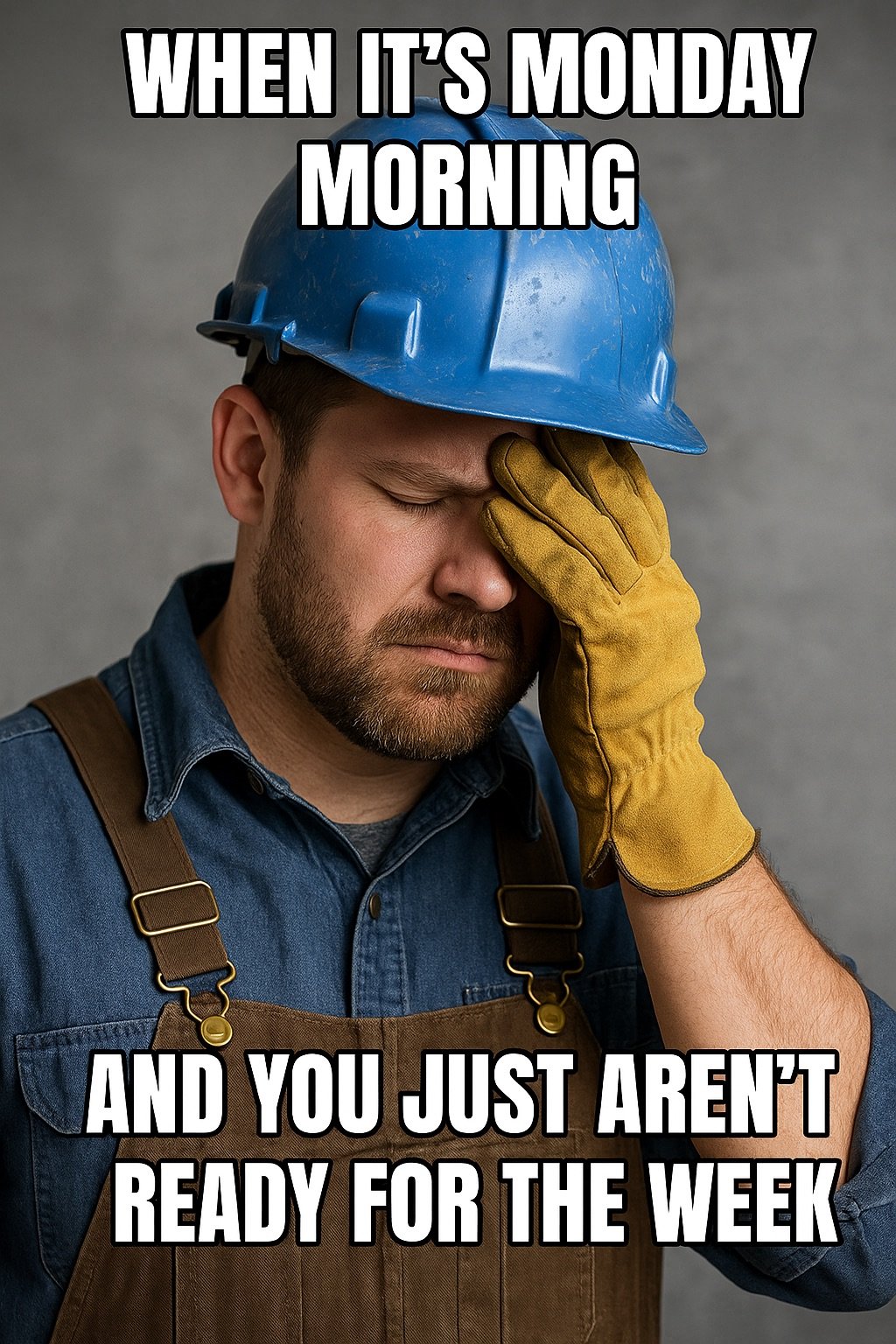
Climbing the Ladder: Careers in Plumbing
.
🧰 1. Plumbing Helper / Laborer
Entry-level support role — boots on the ground and eyes wide open
If you’re new to the trades, this is often your first paid job on a jobsite. Helpers assist licensed plumbers by:
Carrying and organizing tools
Digging trenches and cutting pipe
Hauling materials and setting fixtures
Cleaning up and learning jobsite flow
No license or schooling is required, and it's a great way to see if this path fits you.
✅ “You’re on site early, learning from the best, and not afraid to get muddy.”
🔩 2. Apprentice Plumber
Learn while you earn — the trade school of the real world
Most apprenticeships last 4–5 years and may be through a union, trade school, or directly with a contractor. During this phase, you’ll study:
Pipe sizing and material types (PVC, copper, cast iron, PEX, etc.)
Drainage, venting, and code compliance
Gas fitting and water system layouts
Tool use, safety, and troubleshooting
You’ll combine classroom hours with paid on-the-job training, and likely need to register with your state or local licensing board.
✅ “From PVC to copper to cast iron — you’ll know what to use, when, and how.”
🛠️ 3. Journeyman Plumber
Licensed and trusted — ready to run your own jobs
As a journeyman, you’re legally allowed to install, repair, and maintain plumbing systems without supervision. That might include:
Rough-in and finish work for homes or commercial buildings
Gas piping and hot water systems
Fixture installs, water heater service, and sewer repairs
Supervising apprentices and helpers
Journeymen keep systems safe and sanitary — and get called when the water won’t stop or the heat won’t start.
✅ “You’re solving problems, running jobs, and making water flow where it’s supposed to — and only there.”
🎓 4. Master Plumber
Respected, licensed, and in control — your name carries weight now
After working as a journeyman for several years (varies by state), you can take the master plumber exam. Pass it, and you unlock:
The ability to pull permits
Full responsibility for code compliance and system design
Leadership of crews and large projects
The option to start your own business
You’re not just working in the trade — you’re shaping it.
✅ “You’ve earned the title — and now others come to you for the real answers.”
👷 5. Field Leadership Path
Got strong communication and project chops? Lead from the field.
There are plenty of leadership roles that let you stay close to the work while managing people, schedules, and progress:
Lead Plumber: Manages a small crew or specific job area
Foreman: Runs plumbing scope for an entire jobsite
General Foreman / Superintendent: Oversees labor, materials, and subcontractors across big commercial or industrial builds
✅ “You know the tools, but now you’re also managing time, people, and pressure.”
💼 6. Office & Business Roles
Want to work smarter, bid bigger, or run your own operation?
Plumbing experience doesn’t have to stay in the field — many pros transition into planning, estimating, and ownership roles such as:
Project Manager: Oversees timelines, budgets, and subcontractor coordination
Estimator: Reads blueprints and calculates labor, materials, and margins
Service or Branch Manager: Runs a team or division in a region
Plumbing Contractor / Owner: Operates a licensed business, handles permits, payroll, and long-term growth
✅ “You don’t just run jobs — you run the whole operation.”
🔧 Specialty Plumbing Roles Along the Way
These certifications and specialties can increase your skill set, value, and income — often without leaving the tools behind.
Medical Gas Installer (certified)
Backflow Prevention Specialist
Drain Cleaning / Video Inspection Tech
High-Purity Process Piping Installer
Plumbing Inspector or Plan Reviewer
CAD/BIM Plumbing System Designer
✅ These roles often come with better pay, more flexibility, and high demand — especially in healthcare, industrial, and municipal work.
💵 Wages & Job Outlook
Plumbing isn't just a calling — it's a career with real earning potential.
Journeyman Plumbers: $25–$45/hour
Masters, Foremen, and Specialty Techs: $80K–$100K+ annually
Business Owners / Contractors: Potential for six figures and long-term equity
Why demand stays strong:
Aging infrastructure in cities
Residential and commercial growth
Plumbing codes requiring regular retrofits
Shortage of licensed, experienced plumbers nationwide
Final Word from The Blue Collar Boyfriend
Plumbing isn’t just a job — it’s a craft, a career, and a ladder worth climbing. Whether you’re learning how to sweat a joint or reviewing bids on a commercial job, you’re keeping civilization running clean and safe.
💧 “From helping hands to master plans — there’s room to grow in this trade, and pride to go with it.”

We’ve all Been There
We’ve all been there.
The alarm blares early, the coffee’s brewing, and you’re staring down the barrel of a full workweek ahead. But somehow, your brain’s still stuck in weekend mode — and your body? Well, it’s not quite ready to jump back on the grind.
Cue the classic Monday mood:
Imagine a construction worker, hard hat tilted just a little too low, eyes half-closed, leaning on a tool with that unmistakable “I’m-not-ready” look. That’s Monday for so many tradesmen and women — and honestly, it’s kinda comforting knowing you’re not alone in feeling this way.
Why Mondays Hit Harder for Blue Collar Workers
Unlike office jobs where you might roll out of bed and log into a Zoom call in your pajamas, the trades demand early mornings, physical stamina, and mental toughness right out of the gate. Whether you’re swinging a hammer, wiring a panel, or welding steel, Mondays mean:
Early starts before the sun is even up
Heavy lifting and long hours
Planning for a week full of challenges (and unexpected curveballs)
It’s not just about showing up — it’s about showing up ready to work, and some Mondays, that just feels impossible.
The Honest Truth: It’s Okay Not to Be Ready
If your first thought on Monday morning is “Ugh, not today,” you’re human. The important thing is that you push through — with respect for your craft and yourself.
Here’s a little secret from The Blue Collar Boyfriend: The most seasoned pros still have Mondays where they drag their feet. What sets them apart is their commitment to finish strong, no matter how slow they start.
How to Beat the Monday Slump on the Jobsite
So, how do you flip that “not ready” vibe into “mission-ready” mode? Here are a few quick tips for tradespeople starting their week:
Prep the Night Before: Lay out your gear, pack your lunch, and get your tools ready so Monday morning isn’t a scramble.
Fuel Up Right: A solid breakfast and coffee can do wonders for your focus and energy.
Set a Small Goal: Even if it’s just nailing one task first thing, achieving something early can build momentum.
Lean on Your Crew: Talk to your coworkers, share a laugh, and remember you’re all in this together.
Take Your Breaks: Rest is part of the job—use your downtime to recharge so you can finish the day strong.
We’ve Got Your Back, Monday to Friday
At The Blue Collar Boyfriend, we know Mondays aren’t just a calendar day — they’re a state of mind. Whether you’re a seasoned journeyman or just starting out, we see you. And we’re here with gear, advice, and a little humor to help you tackle the week with grit and heart.
So, next time you catch yourself looking like that “not ready” construction worker meme, just remember: you’re not alone. Take a deep breath, grab your coffee, and let’s get to work.
Keep grinding, keep shining. The Blue Collar Boyfriend’s got your back every step of the way.
